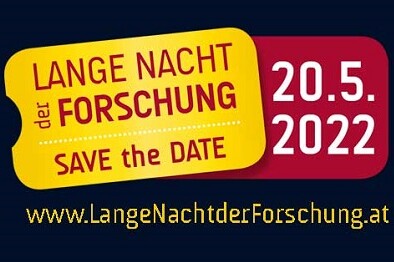Am Freitag, den 24. Mai 2024 wird österreichweit die diesjährige Ausgabe der Langen Nacht der Forschung stattfinden, an welcher auch das BRG Steyr Michaelerplatz teilnehmen wird.
An unserem Ausstellungsstandort werden folgende Stationen zum Staunen, Entdecken und Mitmachen angeboten:
- Lust auf Experimente?
Gemeinsam mit unseren Besucher:innen werden wir in die faszinierende Welt der Naturwissenschaften eindringen und neben Science Shows auch die Möglichkeit bieten, spannende Experimente aus der Physik und Chemie selbst auszuprobieren.
- Lust auf Wissenschaft?
Diese Station gibt Interessierten Einblicke in die wissenschaftliche Arbeit am BRG Steyr Michaelerplatz, wobei ausgewählte vorwissenschaftliche Arbeiten sowie Projekte aus dem Schulalltag vorgestellt werden.
- Wie kann man Lego Mindstorms Roboter bauen und programmieren?
Wussten Sie, dass man aus Lego-Bausteinen nicht nur Roboter bauen, sondern diese auch programmieren kann? Bei dieser Mitmach-Station können kleine und große Besucher:innen Lego-Roboter bauen und ihnen mithilfe einer einfach verständlichen, grafik-basierten Software Leben einhauchen.
- Wie wird ein Podcast produziert?
Wir alle konsumieren täglich audiovisuelle Inhalte in Form von Fernsehen, Radio und Streaming. Am BRG Steyr Michaelerplatz werden neben Fotos und Videos auch Podcasts produziert, welche wir bei dieser Station vorstellen möchten. Besucher:innen haben die Chance, unseren Produzent:innen über die Schulter zu blicken und Interviews zu führen, welche wir nach dem Event in Form eines Podcasts veröffentlichen werden. Möchten Sie eine spannende Story erzählen oder Ihre Faszination über Naturwissenschaften und Technik mit uns teilen? Dann sind Sie bei dieser Station genau richtig!
Die Veranstaltung wird an unserem Schulstandort (Michaelerplatz 6, A-4400 Steyr) stattfinden und von 17:00 bis 23:00 Uhr dauern (letzter Einlass: 22:00 Uhr).
Die Beschreibung unseres Ausstellungsstandortes auf der offiziellen Website der Langen Nacht der Forschung enthält weitere Informationen zu unserem vielfältigen Angebot.
Seien Sie gespannt, was wir für Sie vorbereitet haben – wir freuen uns auf Ihren Besuch!
by Michael Himmelbauer


